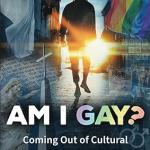 If there is any one go-to thinker about the faith and morals of America’s young adults or emerging adults, it has to be Christian Smith. About a year ago his team (with Kari Christoffersen, Hilary Davidson, Patricia Snell Herzog) produced Lost in Transition: The Dark Side of Emerging Adulthood. Smith’s books have been important contributions in sketch the faith and morals of young adults, and this one takes on five moral issues — morality, consumerism, intoxication, sexuality, and civic and political disengagement. Their study narrows the scope of “emerging” adulthood (the major identifier of this group is Jeffrey Arnett) to 18-23, and not up to 28 or 30. So their field is a bit narrower than “emerging” adults but their study is worthy of very serious engagement.
If there is any one go-to thinker about the faith and morals of America’s young adults or emerging adults, it has to be Christian Smith. About a year ago his team (with Kari Christoffersen, Hilary Davidson, Patricia Snell Herzog) produced Lost in Transition: The Dark Side of Emerging Adulthood. Smith’s books have been important contributions in sketch the faith and morals of young adults, and this one takes on five moral issues — morality, consumerism, intoxication, sexuality, and civic and political disengagement. Their study narrows the scope of “emerging” adulthood (the major identifier of this group is Jeffrey Arnett) to 18-23, and not up to 28 or 30. So their field is a bit narrower than “emerging” adults but their study is worthy of very serious engagement.
What do you think of the idea of being morally adrift or lost instead of morally corrupt? How has the current adult world failed emerging adults?
Big idea: emerging adults don’t reason well morally and their parents, teachers, and pastors have failed to model and teach them how to reason morally. There is a learned and indoctrinated blindness to morality in our culture. Tolerance of others is not moral reasoning; it is often the absence of moral reasoning. We will have to fight uphill to discover the obvious (Charles Taylor). Emerging adults are morally lost, not morally corrupt; they are morally adrift.
Emerging adults are, then, morally adrift. 60% of emerging adults are strongly individualistic in morality. That is, a moral decision is a personal choice and individual decision, and it is up to each person and one ought to respect the moral choices of others. The posture is “I’m not going to tell others what to do.” While they nod to influences — parents, teachers, etc — the predominant idea is that one makes one’s own moral choices. It is wrong to judge the moral decisions of others. Some are moral realists (there is something morally right but they choose) and others moral relativists (they choose and that makes it right).
Which leads to a second area: individualism is followed by some emerging adults being moral relativists. 30% of emerging adults are moral relativists.
On the sources of moral reasoning … they find weak thinking, unsustainable patterns of thought at work for too many emerging adults. A substantial minority violate their own moral beliefs if it works to their advantage. The majority do not refer to moral traditions or authorities, or to religious or philosophical ethics to make moral decisions. They more or less make decisions on the basis of what makes them happy or helps them get ahead in life. And most cannot engage intelligently in a moral dilemma.
Smith then stands for a big idea: “the adult world… has done an awful job when it comes to moral education and formation” (60). How so? “Moral individualism and relativism are simply intellectually impossible and socially unsustainable positions” (60).
Emerging adults are lost because the adult world forming them is also lost. One major area: there is a distinction between “objectively real moral truths or facts and people’s human perceptions or understandings of those moral truths or facts” (61). Slavery is either wrong or not wrong, it is not just perceived to be wrong or not wrong.
He points to the Marx observation that ruling ideas emerge from ruling institutions. So, we have to think of families and public education. Schools avoid serious moral dilemmas. Smith thinks they deal with problems by ignoring them or avoiding them. [Except for hot-button issues, which often devolves into the absence of moral judgment, pointed criticisms of those with moral judgment and political correctness.] Smith is not arguing that’s what schools should do but what he is arguing is that they should teach students how to reason morally.
Included in this problem is how information comes in — internet and TV, video, etc… where competing narratives abound without moral discernment accompanying them. And what others think of them shapes so much of moral decisions and morality.
Many emerging adults live in a world where very little counts as moral. It is a learned blindness to the moral dimensions of life (66).















